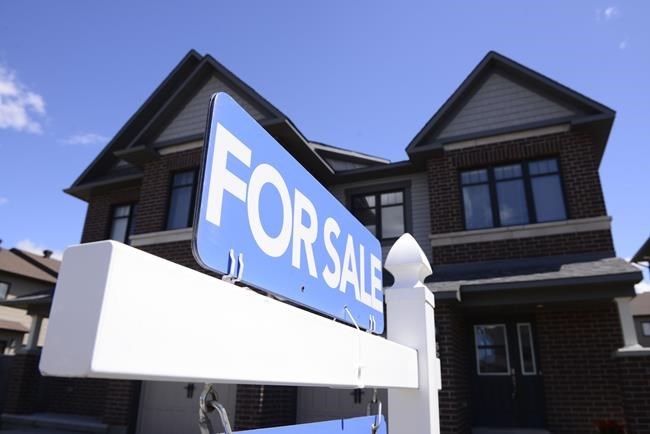As tougher lending requirements have more homeowners turning to the private mortgage market, brokers say having a strategy to eventually get out of the loan is crucial, or they risk falling into a debt trap that could eventually lead to a ‘For Sale’ sign on the front lawn.
“Getting out is very difficult. And if you don't plan for it, or at least acknowledge the difficulties and make that part of your risk determination, you can end up just paying money for the rest of your life and never owning a home,” said Steve Biderman, a mortgage broker at mortgageoutlet.ca.
“You have to treat them as a Band-Aid, not a solution.”
While private mortgages can be appropriate or necessary in certain circumstances, most in the mortgage world consider them a lender of last resort.
A private mortgage is a short-term home loan (typically one year), based on the value and equity in the home. It's financed by affluent individuals or a group of investors, rather than a bank or other financial institutions like credit unions. Examples of Canadian private mortgage lenders include Capital Direct and Alpine Credits.
They can be a financial lifeline for a homeowner or buyer who can’t get traditional financing because of their low credit score or because they don’t pass traditional lending requirements, but the fees and interest rates associated with these loans are significantly higher than a bank or credit union.
Private mortgage interest rates can range from 10 to 18 per cent, depending on factors such as the property value and credit risk of the borrower, according to rate comparison website Ratehub.ca, compared with mortgage rates of around six or seven per cent at the big banks. The monthly payments on private mortgages are also usually interest only.
A so-called exit strategy maps out how the borrower will move out of the private lending space to a traditional lender. That can involve refinancing, using available cash to reduce or pay off the loan or outright selling the property.
“Sometimes, it's the only game in town, right? And if it's focused with a particular purpose in mind, it can be a wonderful stopgap,” Biderman said.
“But when it's used to maintain ownership of a house that you really can't afford, where you're cash flowing negative constantly, it’s just going to eat up your equity eventually.
"There is no ‘pro’ to that type of private lending because ... if it's just a way to not sell the house, it will become a way only to delay the selling of that house.”
Frances Hinojosa, the co-founder and chief executive of Tribe Financial Group, says she only uses private lending on an “as is, as needed” basis. Private mortgages make up only a small part of her business because the potential pitfalls can be severe.
However, the private lending market has flourished over the years as home prices skyrocketed and more recently, borrowing costs jumped.
The latest data from the Financial Services Regulatory Authority of Ontario shows private mortgages represented 11.7 per cent of all brokered mortgages in the province last year, compared with 8.4 per cent in 2014. The dollar value of private mortgages in Ontario last year was $25.9 billion, more than doubling from $9.1 billion in 2014, according to the data.
“Private mortgages have definitely come into the forefront as we head into these uncertain times,” Hinojosa said.
“It’s becoming more and more prevalent as a type of product that consumers are leaning into in order to afford their current situation," she said, also adding that some homebuyers see private lenders as their only option to get onto the property ladder.
She says she’s also noticing an increasing number of homeowners who were previously set up with a private mortgage at other firms without a proper exit strategy — they're now not able to handle the higher monthly payments upon renewal nor do they have proper options to move forward with other financing options.
“We're starting to have difficult conversations with homeowners saying, really, your only exit strategy at this point is you should seriously consider selling and right-sizing your housing situation — look at buying something smaller or something a bit cheaper,” she said.
Biderman says homeowners who currently have a private mortgage should look at the original reason and rationale on why they obtained the loan, what their exit strategy was and whether or not that plan is still do-able.
“If your exit plan is no longer possible, or you don't have an exit plan, or if you are unsure where you stand, you should talk to a mortgage professional," he said.
"Check your maturity date. Know your property's value. Find your mortgage documents, read them and have them standing by."
Otherwise, he says, the consequences could be dire, including a forced property sale, a rapid erosion in home equity or the inability to refinance.
This report by The Canadian Press was first published Oct. 30, 2023.
Michelle Zadikian, The Canadian Press



